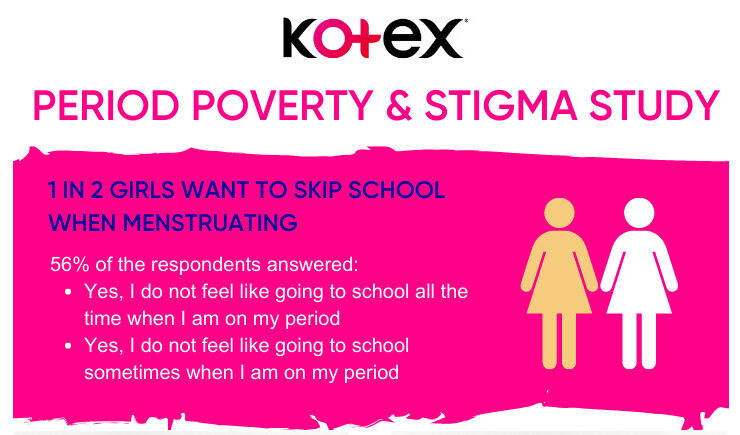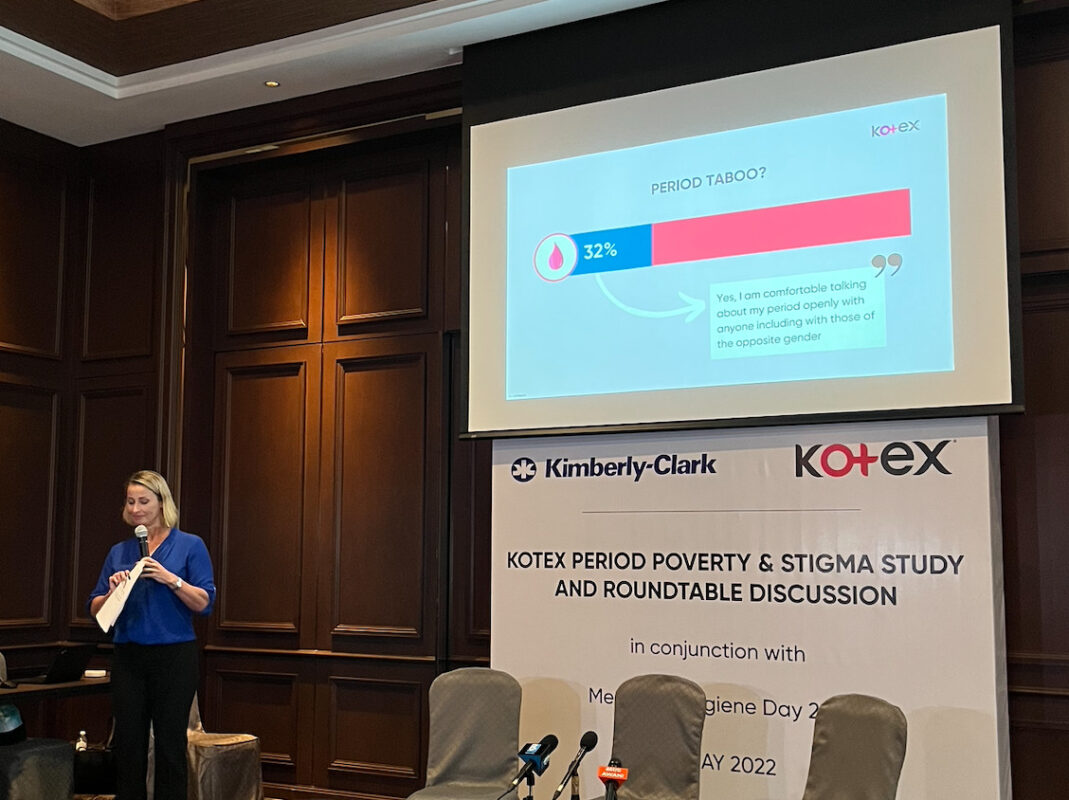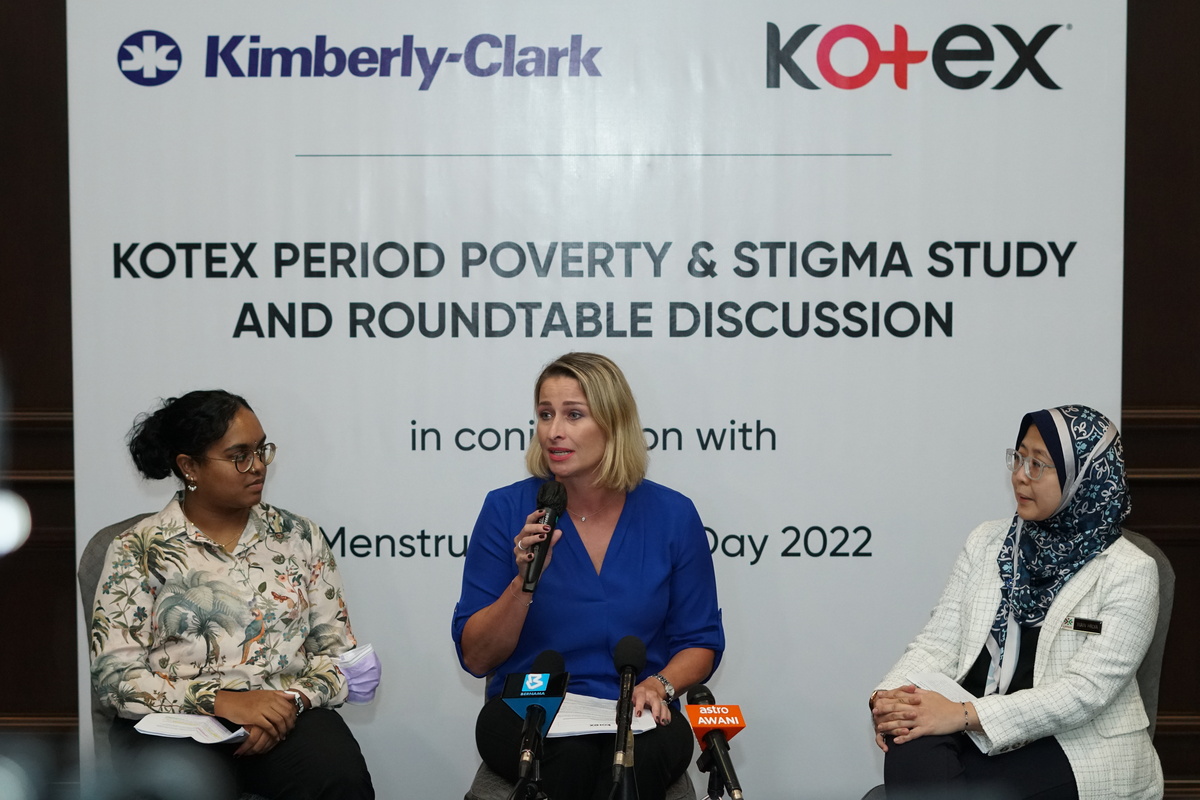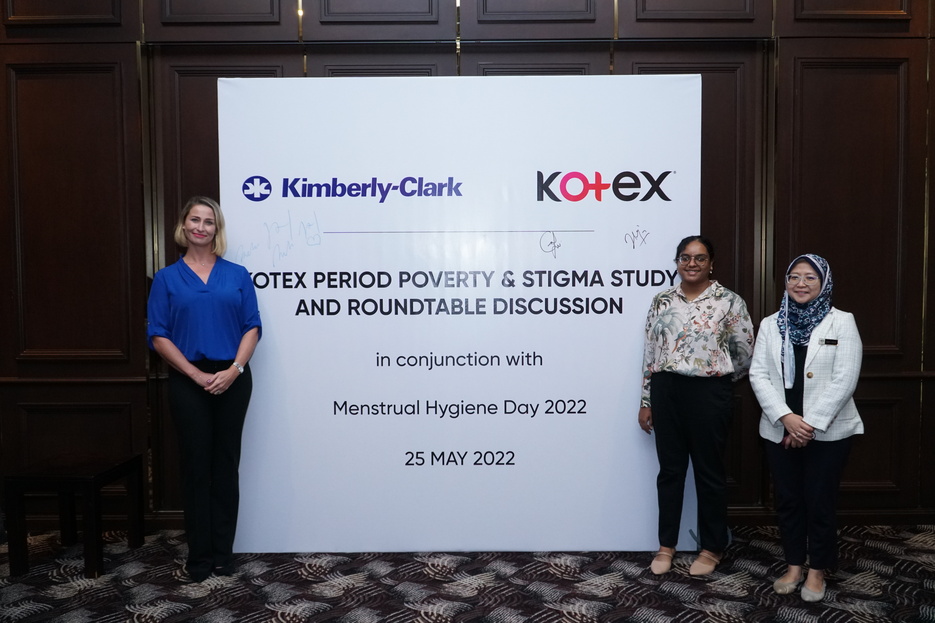1 in 2 girls want to skip school completely when they’re menstruating. 54% of girls feel uncomfortable about their own selves when they’re on their periods.
According to the findings of the first Kotex Period Poverty and Stigma study, more than one in two females wanted to miss school when they were on their periods. This suggests that periods continue to be a mental barrier in how a girl views herself and her motivation to participate in school and daily activities in this day and age.

The study, which included nearly 750 girls aged 10 to 24, is part of Kotex®’s effort to better understand the state of period poverty and stigma in Malaysia so that clear actionable measures can be taken to help Malaysian women advance their lives and ensure that their period never gets in the way of their development. The findings were presented at a roundtable discussion hosted by Kotex in honour of Menstrual Hygiene Day, which included representatives from the National Population and Family Development Board (LPPKN) and Women’s Aid Organisation (WAO).
The Numbers
While more than 86% of respondents acknowledged that their period is a normal bodily function, only 32% stated that they are comfortable discussing periods openly, including with that of the opposite gender. The study further indicates that 54% of girls feel self-conscious about themselves during their periods and approximately 30% dread menstruating despite knowing that it is merely a natural bodily process.
Girls’ reflection, viewpoint, and experience did not change significantly among age groups, whether they were in primary, secondary, or upper tertiary education institutions, according to the study. This shows that, despite being educated and having gone through numerous life phases, girls’ attitudes and acceptance of periods have not changed, as they continue to battle with themselves and their bodies, particularly when menstruating.

Period Poverty
Period Poverty refers to a lack of access to feminine hygiene goods as well as period management and menstrual waste management education. Period poverty can be eradicated through improving menstrual hygiene and period management education. Only 26% of respondents had heard of the term “period poverty,” and only 76 of the 746 respondents genuinely understood what it meant, according to the Kotex Period Poverty and Stigma research.
During the roundtable discussion on period poverty, Gaayathrey Balakrishnan, Capacity Building Officer of Women’s Aid Organisation (WAO), said, “When girls, women and menstruating persons cannot access safe and hygienic sanitary products and are unable to manage their periods with dignity, it is hazardous to their health. It can lead to severe health risks and reproductive infections. This situation, known as period poverty, also keeps young girls from achieving their full potential by restricting their access to education. Many young girls skip school when experiencing menstruation, which sometimes leads to them dropping out entirely due to the lack of access to sanitary products.”
5% of respondents said they couldn’t afford sanitary pads. When asked how they dealt with their periods, they stated that they use batik, old cloths, and newspapers. Dr. Wan Hilya Munira Binti Mustapha, Division of Human Reproduction, National Population and Family Development Board (LPPKN) explained that using non-hygienic materials to control periods might cause infection and discomfort if not properly washed and sanitised, in addition to leaking issues.
The solution

During the roundtable discussion, Dr Hilya said the findings confirmed the need for a national intervention. “LPPKN, under the Ministry of Women, Family and Community Development, has formed an inter-governmental partnership with the Ministry of Education to run reproductive health education in secondary schools. Many studies have shown that if girls can see the correlation between period and reproductive health, they would likely be more accepting of their bodies. It is also important that we have respectable figures like teachers to start discussing periods more openly to normalise periods amongst teens and show them that there is nothing to be ashamed of.”
Dr. Hilya went on to say that the LPPKN applauds all efforts by government agencies, the private sectors, and non-governmental organisations (NGOs), such as the Kotex Period Poverty and Stigma roundtable and trendy marketing campaigns, to bring period poverty and stigma to light in modern and exciting ways.

Kotex has also partnered with LPPKN and WAO to provide school-aged girls with menstrual hygiene and period management education through webinars and the brand’s digital period education game, She Can Project.
“The findings from our study reinforces the need to educate the community on menstrual hygiene and to empower girls with the tools to better understand period health. If left unattended, period poverty will hamper girls’ education, cause a dent in self-confidence and threaten their health and well-being. We started our empowerment work in Malaysia 20 years ago and have successfully supported approximately 1 million girls with education. The way we see it, the fact that over 86% of respondents recognise that their period is a normal bodily function, is a win to us. However, we need to double down on our efforts if we want to fully eradicate period poverty and stigma in Malaysia. We thank LPPKN and WAO for their partnership and look forward to doing more, both in terms of education as well as widening the supply of sanitary pads to Malaysian girls and women”, concluded Martina Jezdikova, Marketing Director of Kimberly-Clark Malaysia.
Follow us on Instagram, Facebook or Telegram for more updates and breaking news.









